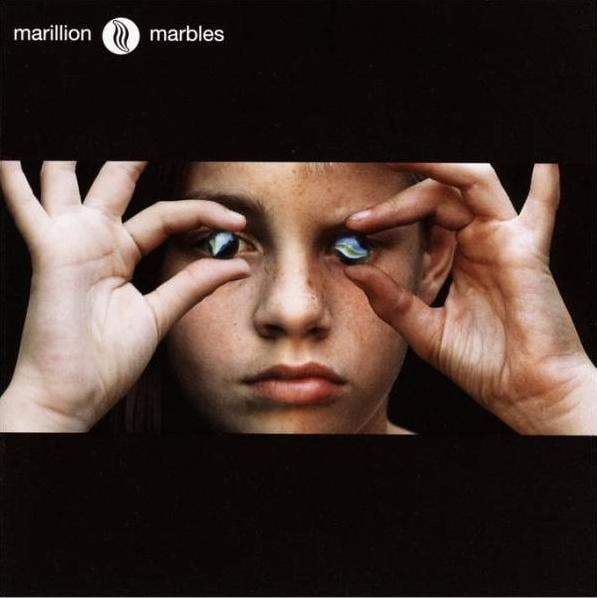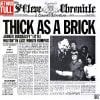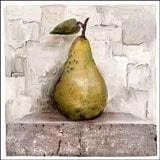/PAlogo_v2.gif)
/PAlogo_v2.gif) |
|
Post Reply 
|
Page 12> |
| Author | |
Pnoom! 
Forum Senior Member 
Joined: September 02 2006 Location: OH Status: Offline Points: 4981 |
 Topic: Thick As A Brick - interpretation Topic: Thick As A Brick - interpretationPosted: October 18 2006 at 08:42 |
|
This song might well be the hardest I have ever had to interpret. Here is the meaning (just of side one) that I got. Think you can do better, feel free to contribute.
The song opens with just a little bit about the poem. It says that he doesn't mind if you don't read it (sit it out). His poem (words) may not say too too much (whisper), but your inability to access it, to learn from it (deafness), hear it's message, that says a ton (shout) about you. He says that the poem may make you feel, but it can't make you think, that's something you have to do for yourself. As if to illustrate this, he gives an image of you going out and acting on impulse (sperm in gutter, love in sink).
Thus, you ride out into the fields to act like animals (as opposed to people), and the people who guide you (wise men) cannot empathise, because they don't know how it feels to be thick as a brick. The sand castle virtues refers to entreprenurial morality (an interesting concept), but in the confusion caused to religion (and other factors), making up the moral melee, cause this morality to be washed away, in favor of immorality. As the moral melee makes it's "elastic" retreat, it leaves behind a "newfangled" conformism.
BUT!, adherents to this conformism wear out their shoes, and get sunburned, and the whole wise man deal from before. Now we get to his lover, who is far away, and so he sees himself as being unreal (a bad dream that I just had today). Society's response is one of indifference (shake your head/said it's a shame). He wishes (odd for an eight year old, albeit a mature one) to go back to his toddler days, where he had no worries and did not have to deal with TRUTH, and people would sing him songs, and everything was wonderful. Now we move on to society's involvement. When he was born, they saw not a child, but a soldier, even though he is still young (as evidenced by such signs of immaturity as pimples and bed-wetting). They chew him up, teach him how to succeed in our fake world (make a man of him), and spit him out, and none the better for it.
Next, he grows up, and goes off to war. The next lyrical bit talks about how when he comes back, poets write about him, and painters paint him. He is the do-er, they are the think-ers, and society does not have room for both. As the last rays of hope (failing light) give light to (illuminate) the victory of the do-ers (mercenary's creed). The next bit is slightly unclear (sorry all). However, the poet lifts his pen while the soldier sheaths his sword, meaning that society makes one last attempt to live by the pen rather than the sword (think: "the pen is mightier than the sword"). Referencing back to entreprenurial morality, the son (youngest of the family) takes control and attempts a moral life, daring society to make him conform (tardy tide... wash them all aside). The next part (yes, I am getting tired here, and will be less specific here on out), gets us to the point where we see the poet sheath his pen, and the soldier lift his sword (violence over politics). However, the son then puts it to his old-fashioned, violence oriented (or something like that) father. Now the father dies, and the son is on his own. He now has to decide what he wants to do with his life (does he want to be his father, or right his father's wrongs). Later we learn that he is upper class, bringing his upbringing to the lower classes, trying to mend them to be like him. He has become his father. He is going to teach the criminals that they are wrong, like he did with his dad (back when he "put him to the run."). He feels, however, that he is above judgement himself ("judge you all... no one judges me"). Then we get a third person view of what he did, silently watching him be the very person he abhorred in his father. We then get some examples of his upper-class status, and watch and let him bend the rules. The next paragraph is distinct, speaking of how society is looking for a hero, a superman, to come lead them out of their troubles. It is set apart, and I'm not sure quite how it relates to the story of the son. Then we get back to the son, how he had all the advantages, and was always treated as superior. BUT, because of this, he can no longer call on anyone to save him, because he sees himself as better than everyone. And now I understand, he is calling on superman and the like to save him, because they are the only figures he sees as being above him. Biggles is a fictitious pilot. Biggles and the sportsmen, who were his childhood idols, are all too self-occupied to be his role model, and so he is alone in society Part 2 to come, hopefully.
|
|
 |
|
Neil 
Forum Senior Member 

Joined: October 04 2006 Location: United Kingdom Status: Offline Points: 1497 |
 Posted: October 18 2006 at 08:55 Posted: October 18 2006 at 08:55 |
|
Very impressive
|
|
|
When people get lost in thought it's often because it's unfamiliar territory.
|
|
 |
|
unforgivable74 
Forum Groupie 

Joined: August 17 2006 Location: United Kingdom Status: Offline Points: 99 |
 Posted: October 18 2006 at 09:19 Posted: October 18 2006 at 09:19 |
|
That really is good. OK, after you've done Part 2, try 'The Lamb lies Down On Broadway'! You'd think the story would help you with the lyrics......
|
|
|
Laughs as I clean my teeth, laughs as I rub at my eyes.
|
|
 |
|
URTAAB 
Forum Newbie 
Joined: October 18 2006 Status: Offline Points: 10 |
 Posted: October 18 2006 at 10:20 Posted: October 18 2006 at 10:20 |
|
|
|
 |
|
Firepuck 
Forum Senior Member 
Joined: February 28 2006 Location: Canada Status: Offline Points: 657 |
 Posted: October 18 2006 at 10:47 Posted: October 18 2006 at 10:47 |
Very nice. Perhaps I can add a few thoughts using your interpretation.
For "The next bit is slightly unclear (sorry all)" the lyrics are:
"The home fire burning: the kettle almost boiling
but the master of the house is far away. The horses stamping, their warm breath clouding in the sharp and frosty morning of the day." To me this means that the son / soldier has returned home to find;
"The home fire burning:" - not much has changed at home as far as the day to day business (does his father have his own business that the soldier is expected to help with? or perhaps it harkens to older days of an agricultural based society, using this imagery to parallel more modern careers, or perhaps he is a nobleman with an estate?)
"the kettle almost boiling" - whichever view you take (above), things at the household / business are coming to a head because no one is watching the store, so to speak. Decisions need to be made. This is because...
"but the master of the house is far away." - Dad has died (or is too sick to manage his affairs).
"The horses stamping, their warm breath clouding" - the workers, staff, clientelle, etc. are nervous of their future because of the death / illness of their benefactor
"in the sharp and frosty morning of the day." - morning equates to new start, will the son / soldier takes over the business? or is another fate in store for them (the horses)? This fits your story (Ian's story???) except for your timing of the death of the father. I think that part of the song is a reflection after the fact. The father has died, the son has taken over the business and is realizing that he is (turning into) his father. He is questioning his decisions because this is not who he thought he was going to become. He has become trapped by that which he despised in his youth (society, responsiibility, etc.). Can he escape this fate? Does he want to?
"And your real self sings the song. Do you want to free him?" Edited by Firepuck - October 18 2006 at 10:48 |
|
|
Kryten : "'Pub'? Ah yes, A meeting place where humans attempt to achieve advanced states of mental incompetence by the repeated consumption of fermented vegetable drinks."
|
|
 |
|
Sean Trane 
Special Collaborator 
Prog Folk Joined: April 29 2004 Location: Heart of Europe Status: Offline Points: 20683 |
 Posted: October 18 2006 at 11:24 Posted: October 18 2006 at 11:24 |
there will be many Brits on this site who will talk of Biggles better than I can, but I would not call it a fictitious character, as far as I know. I think he represents the feisty heroes/pilots (whether it is one exact guy named that or it is a composite character is not clear in my mind) of the RAF (Royal Air Force) fighting on their Spitfires during the 2nd WW who fought the Luftwaffe (mostly Messerschmitt 109 and those dreaded dive-bomber Stukka Junkers) and almost single-handedly stopped Hitler from taking the British Isles. These guys were reverred heroes.
What is relatively unknown though is that a lot of them were Poles that had fled the country in 39 following their country's invasion and had a huge hatred of the Nazis.
Some of those skyfighters actually went to on to fight in Burma as the Flying Tigers >>> Whether Biggles went there is not clear to me.
So Biggles is a very much alive myth still in 70's England.
|
|
|
let's just stay above the moral melee
prefer the sink to the gutter keep our sand-castle virtues content to be a doer as well as a thinker, prefer lifting our pen rather than un-sheath our sword |
|
 |
|
el böthy 
Prog Reviewer 
Joined: April 27 2005 Location: Argentina Status: Offline Points: 6336 |
 Posted: October 18 2006 at 12:22 Posted: October 18 2006 at 12:22 |
|
Pretty good, and it does all make sense
Im looking forward for Part two wow...Anderson is such a genius... Edited by el böthy - October 18 2006 at 12:22 |
|
|
"You want me to play what, Robert?"

|
|
 |
|
Easy Livin 
Special Collaborator 

Honorary Collaborator / Retired Admin Joined: February 21 2004 Location: Scotland Status: Offline Points: 15585 |
 Posted: October 18 2006 at 12:24 Posted: October 18 2006 at 12:24 |
|
Biggles was indeed fictional, from the author WE Johns.
You won't find his most famous book "Biggles flies undone" listed anywhere though.
There are many subtle references in the song.
"Robin saves the day" for example links the Superman reference which precedes it, via Batman's partner to Robin Day. Day was at the time of TAAB probably the most famous British political interviewer. His abrasive style was quit unique for the time.
I've never really thought about the meaning of the album, but the 16 page newspaper sleeve is pure magic.
|
|
 |
|
Pnoom! 
Forum Senior Member 
Joined: September 02 2006 Location: OH Status: Offline Points: 4981 |
 Posted: October 18 2006 at 15:48 Posted: October 18 2006 at 15:48 |
|
The stupid computer just deleted my first attempt at part two. Thankfully, I had most of it saved. Here it is:
I'm going to start part two, and I have an hour, so hopefully I'll finish it. If not, I'll find time somehow:
Remember how "a son is born, and we pronounce him fit to fight." Here is the conclusion to that. The "son" comes home a man, and so he is now "fit for peace" ("see, there, a man is born, and we pronounce him fit for peace/there's a load lifted from his shoulders with the discovery of his disease") at the time when he is most able to fight. This goes along with the old view that war was a way to make men of boys. The disease, of course, are the experiences of the war. So, we hand him a disease, then realize our mistake, and keep on doing it with countless other son's. This is seen in the lines "we'll take a child from him, put it to the test..." Even though they realized what war did to him, they're still going to send his child to war.
****Note the line "teach him to be a wise man, how to fool the rest" line for later. It is quite important.****
"We will be geared towards the average rather than the exceptional" means exactly what it says, that we will maintain the status quo. And then he gives an example, of the 218 babies wearing nylons, all destined to become soldiers.
The son (now a man) has not escaped, however. He appears to be in a position of power, overlooking the newest soldiers ("in the clear white circles of morning wonder/I take my place with the lord of the hills/and the blue eyed soldiers stand slightly discoloured/in neat little rows sporting canvas frills"). They are disinterested ("slouch to attention"). The son sees that all they care about are their own personal affairs ("saying, 'how's your granny...'"), rather than the good of their country. The next little lyrical bit (about the hymn and the sadist) is unclear. Help appreciated...
The next few lines is the son's dream for the world, where the leaders will decide to bring the judgement day ("signal forth the crack of dawn, light the sun") through a grand war ("the poet and the wise man" [the leaders] "stand behind the gun").
The son addresses them: "do you believe in the day?..." He then provides them with a vision of judgement day ("the dawn creation of the kings has begun"), and asks them if they even care. He feels that their lethargy is preventing his dream from becoming reality.
I must now formulate the theory that there are two different personalities of the same son conflicting, one a wise man (the commander in the army), the other thick (the son who wants to reform the world, if you remember from part 1). I’m still trying to work this out, and hopefully I’ll get it as I move along. We then move to an overview of the whole thing. An outside source reflects on the son's life ("let me tell you the tale of your life"). He tells of everything that has happened to the son - "the cut of the knife" (war), "the wisdom instilled" (making him a wise man), "the desire to kill or be killed" (apocalypse seeking commander).
It then gives a scene of destruction ("the gutters run red") while the commander ("the fool") "toasts his God in the sky." Why is the commander, before a wise man, now a fool. Because the narrator is the "thick" side of the person. "Wise man" simply means going along with what society wants, conformist, etc. "Thick" is how society sees nonconformism. In other words, the son is, in real life, the commander, but his conscience wants him to break out of the chains of society and do something (which is essentially the whole poem in one paragraph, right there, but I'll go on anyway). Thus, the "thick" side sees the "wise" side as a fool.
Then, the conscience side comes and calls on all the "thick" people ("come on all you young men who are building castles") to band together and "state the time of the year." What "state the time..." really means is see that it's time to reform. He then goes on to say, "let me help you put things right" ("help you to pick up your dead"). But the "sins of the fathers" draw the "young men building castles" back to society. The conscience calls on them again (same lyrics as at the beginning of the paragraph), but they do not respond.
Instead, they turn back to their superhero idols for guidance, and all that jazz (see my part 1 review for what it means).
The conscience laments that he is once again alone in the world. The conscience is sad that his body "rides over the fields" (goes to war), and acts like an animal in doing so ("make all your animal deals"), but most importantly, that no "wise men know how it feels to be" moral ("thick as a brick")
And now I'm done, again. Thanks to everyone who has helped (Firepuck especially). Any more contributions like that are more than welcome. Hopefully, then, I can produce a clean (and more accurate) copy (citing all who contribute, of course), and post it here.
Hope my computer doesn't delete it this time..., except now I've got the whole thing saved... |
|
 |
|
Pnoom! 
Forum Senior Member 
Joined: September 02 2006 Location: OH Status: Offline Points: 4981 |
 Posted: October 18 2006 at 15:49 Posted: October 18 2006 at 15:49 |
|
It worked.......... (gasp).
|
|
 |
|
Easy Livin 
Special Collaborator 

Honorary Collaborator / Retired Admin Joined: February 21 2004 Location: Scotland Status: Offline Points: 15585 |
 Posted: October 18 2006 at 15:52 Posted: October 18 2006 at 15:52 |
|
Great stuff inpraiseoffolly
|
|
 |
|
Pnoom! 
Forum Senior Member 
Joined: September 02 2006 Location: OH Status: Offline Points: 4981 |
 Posted: October 18 2006 at 16:30 Posted: October 18 2006 at 16:30 |
 |
|
Pnoom! 
Forum Senior Member 
Joined: September 02 2006 Location: OH Status: Offline Points: 4981 |
 Posted: October 18 2006 at 17:36 Posted: October 18 2006 at 17:36 |
|
By the way, I don't mind if anyone submits a full interpretation that's different from mine.
|
|
 |
|
Atavachron 
Special Collaborator 

Honorary Collaborator Joined: September 30 2006 Location: Pearland Status: Offline Points: 65892 |
 Posted: October 18 2006 at 18:06 Posted: October 18 2006 at 18:06 |
|
That *is* very well-observed and thought out.
|
|
 |
|
tuxon 
Forum Senior Member 

Joined: September 21 2004 Location: plugged-in Status: Offline Points: 5502 |
 Posted: October 18 2006 at 18:08 Posted: October 18 2006 at 18:08 |
have to agree with easy here.
a good read, adn I'll keep it in mind when listening to the album next time, and stat focussing on the lyrics aswell as the music.
|
|
|
I'm always almost unlucky _ _ _ _ _ _ _ _ Id5ZcnjXSZaSMFMC Id5LM2q2jfqz3YxT
|
|
 |
|
Codis 
Forum Groupie 
Joined: January 06 2006 Location: United States Status: Offline Points: 75 |
 Posted: October 18 2006 at 20:29 Posted: October 18 2006 at 20:29 |
It's been done, http://www.rawbw.com/~marka/music/lamb.html Hey, I kinda like that 'default' avatar!  Edited by Codis - October 18 2006 at 20:31 |
|
 Grammy Award Winning Jethro Tull! Grammy Award Winning Jethro Tull!
1989 Best Hard Rock/Metal Performance 
|
|
 |
|
Sean Trane 
Special Collaborator 
Prog Folk Joined: April 29 2004 Location: Heart of Europe Status: Offline Points: 20683 |
 Posted: October 19 2006 at 06:48 Posted: October 19 2006 at 06:48 |
That Biggles character was also portrayedf in French comic books , but only the frame of the 2nd WW, though. That's how I heard about it.
However I never had imagined so many books in such a wide frame.
He's probably the equivalent of Henri Verne's Bob Morane, who published around the same years an extended bibliography. Most people my age in Belgium and France must've read some 100 of his 200 books: This actually rocked by life around 9 to 12.
|
|
|
let's just stay above the moral melee
prefer the sink to the gutter keep our sand-castle virtues content to be a doer as well as a thinker, prefer lifting our pen rather than un-sheath our sword |
|
 |
|
Pnoom! 
Forum Senior Member 
Joined: September 02 2006 Location: OH Status: Offline Points: 4981 |
 Posted: October 19 2006 at 08:36 Posted: October 19 2006 at 08:36 |
|
To sum up my interpretation, a boy is transformed by society into something he doesn't want to be, but only his conscience realizes this. His conscience realizes the hope is lost for his body, and so calls on anybody out there with a heart to continue his dream for a better world. That's what the song is, telling people, "don't let what happened to me happen to you, keep my dream alive..."
|
|
 |
|
Pnoom! 
Forum Senior Member 
Joined: September 02 2006 Location: OH Status: Offline Points: 4981 |
 Posted: October 20 2006 at 00:34 Posted: October 20 2006 at 00:34 |
|
I just found out that each time LATER appears in the lyrics, it means a generation has passed. That changes things a bit.
|
|
 |
|
Pnoom! 
Forum Senior Member 
Joined: September 02 2006 Location: OH Status: Offline Points: 4981 |
 Posted: October 31 2006 at 19:49 Posted: October 31 2006 at 19:49 |
|
Someone else want to submit something, this wasn't just a chance for me to talk about it, you know.
|
|
 |
|
Post Reply 
|
Page 12> |
| Forum Jump | Forum Permissions  You cannot post new topics in this forum You cannot reply to topics in this forum You cannot delete your posts in this forum You cannot edit your posts in this forum You cannot create polls in this forum You cannot vote in polls in this forum |